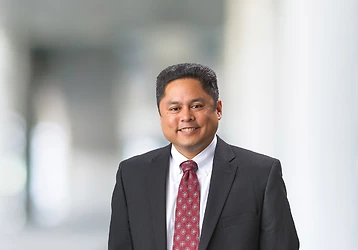Dealing with F-1 Student Visa Application Denials
Fall is approaching. The leaves will change color and the temperature will cool down for most the country. It is also a time when families prepare their children for school. Some students will begin their first day of Elementary School while others will begin their final year of High School. Some families will be preparing to send their children to College. Colleges and Universities will be welcoming back new and returning students. Some of these students will be coming from countries that require students to first apply for F-1 visas before they may be admitted to the United States to attend classes.
The F-1 Visa Application Process
In general, educational institutions that sponsor foreign students for F-1 status are required to participate in the Immigration and Customs Enforcement (“ICE”) agency’s Student and Exchange Visitor Program (“SEVP”) administrated through ICE’s Student and Exchange Visitor Immigration System (“SEVIS”) web based program. Through SEVIS, the SEVP approved educational institution may complete and issue a Form I-20 Certificate of Eligibility for Nonimmigrant Student Status. Foreign students complete visa applications and set up an interview at a U.S. Consulate where they present their passport, Form I-20 issued by the U.S. University seeking to have the student attend their institution, along with a variety of documents related to their specific immigration case. They then hope that the U.S. Consulate officer will approve the case and issue an F-1 visa. In most instances, the F-1 visa is issued. In some other instances, the F-1 visa is not issued.
What Do You Do When an F-1 Visa is Not Issued?
In the cases where the F-1 visa is not issued by the U.S. Consulate, it is important for the sponsoring educational institution to consult with an experienced immigration attorney to advise the academic representative, and assist the foreign student navigating this part of the visa application process. Visa applications may be delayed (or “temporarily denied”) or even substantively denied for a variety of reasons.
One reason for a visa to be temporarily denied is due to a background check. Typically, this situation manifests as a form decision by the Consulate with a reference to “221(g)” stating that the case is denied pending a background check. Should the background check result in no negative information, the denial would be revoked, and the matter approved resulting in the issuance of the visa.
Visas for students may also be negatively impacted by other reasons. Students need to demonstrate an ability to financially support themselves while in the U.S. and that they would not need to be dependent generally on government resources for financial support. Students also need to demonstrate that they have a clear U.S. immigration record and legal history free of a negative background to avoid the public charge and criminal prohibitions to admissibility to the U.S. Lastly, foreign students need to demonstrate that at the time of the visa application intend to return to their home country and do not possess immigrant intent (“green card” intent) with a hope to reside in the U.S. indefinitely.
What Happens After an F-1 Visa is Granted?
Once a foreign student is admitted using his or her F-1 visa, the immigration officer will confer F-1 status to the student. A student holding this designation is permitted to stay for the “duration of their status” which essentially means that they may stay until their educational curriculum with the sponsoring college or university is completed. The immigration officer designates the status and the term “D/S” (for duration of status) inside the foreign student’s passport. The student must maintain their full-time student status with the school.
Sponsoring educational institutions should consult with experienced immigration attorneys in addressing circumstances that may derail a foreign student’s ability to enter the U.S. to attend classes. Similarly, foreign students should consult with immigration counsel regarding the visa application process and to consider immigration strategies to remain in the U.S. when their “college” days conclude.
Please feel free to contact the authors of this client alert or your Butzel attorney for more information.
Reginald Pacis
313.983.6929
pacis@butzel.com
Lynn McGuire
734.213.3261
mcguire@butzel.com
Carey DeWitt
248.258.2607
dewitt@butzel.com













